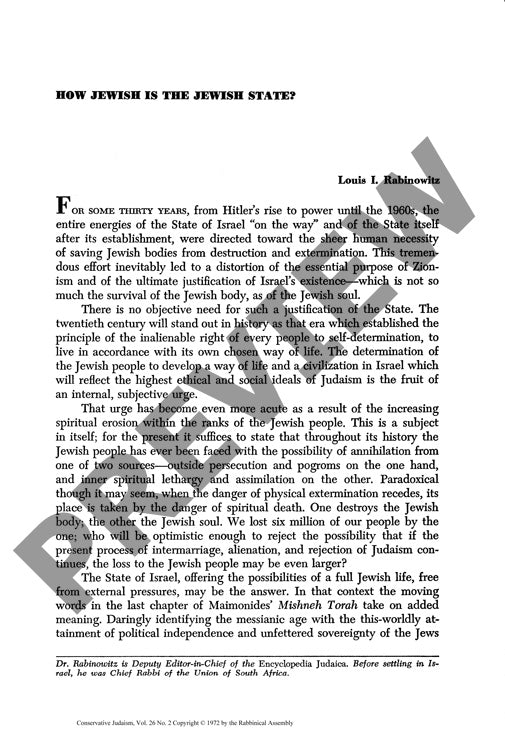How Jewish Is the Jewish State
Couldn't load pickup availability
The modern State of Israel faces a profound identity paradox: while officially designated as the Jewish state, its implementation of Jewish values extends little beyond ceremonial observance. Through a five-dimensional analysis spanning national formalities, legislation, ethics, education, and cultural atmosphere, deep disparities emerge between Israel's Jewish framework and its practical governance. Traditional Jewish law (halakhah) maintains authority only in matters of personal status, while civil legislation frequently diverges from Jewish legal principles, creating an anomalous dual system. The educational landscape particularly reflects this disconnect—seventy percent of students in non-religious schools receive minimal Jewish education, accelerating spiritual erosion. While a distinctive Israeli character has emerged, marked by independence, courage, and egalitarianism, questions persist whether these traits stem from Jewish ethical teachings or modern circumstances. The methodology encompassed comparative analysis between halakhah and Israeli civil legislation, examination of educational systems, and evaluation of social practices. The findings indicate that Israel's Jewish identity remains largely ceremonial rather than substantive, necessitating comprehensive educational reform and spiritual revolution to develop authentic Jewish character. Without deliberate cultivation of Jewish values across all sectors of society, Israel risks devolving into merely another secular state, its formal Jewish designation notwithstanding.

More Information
-
Physical Description
-
Publication Information
Published 1972
ISBN
-
Publication Credits
Louis Rabinowitz

